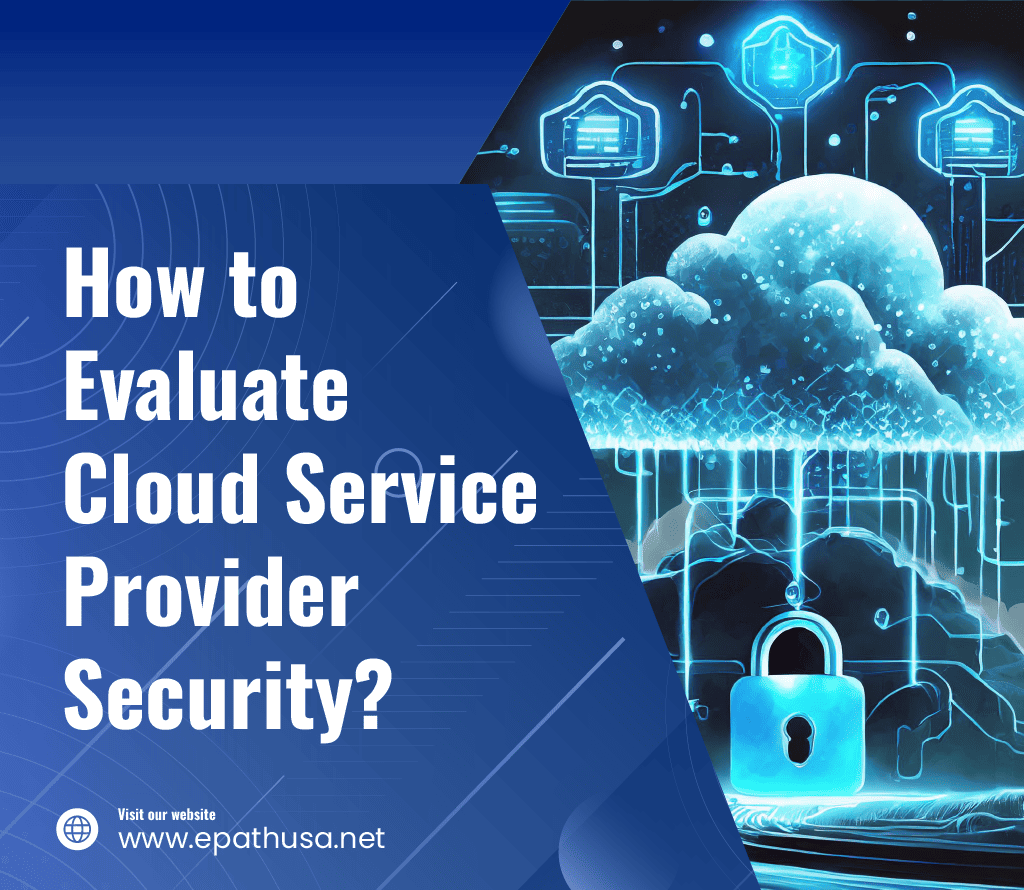In an era where data breaches and cyber threats loom large, choosing the right cloud service provider (CSP) with robust security measures is paramount for safeguarding your business’s digital assets. Evaluating the security posture of CSPs requires a thorough understanding of key factors and considerations. In this guide, we’ll explore how to effectively evaluate cloud service provider security to make informed decisions that protect your organization’s data and assets.
1. Assessing Compliance and Certifications:
Begin by evaluating the CSP’s compliance with industry standards and certifications such as ISO 27001, SOC 2, HIPAA, and GDPR. These certifications demonstrate the provider’s commitment to maintaining stringent security protocols and adherence to regulatory requirements. However, it’s important to note that compliance does not guarantee complete security. Look for CSPs that go above and beyond compliance requirements to implement additional security measures tailored to your business needs.
2. Understanding Data Encryption:
Data encryption is a cornerstone of cloud security, ensuring that sensitive information remains protected from unauthorized access. Evaluate the encryption mechanisms employed by the CSP, including encryption protocols, key management practices, and data segregation policies. Look for CSPs that offer transparent encryption practices and allow you to retain control over encryption keys, providing an added layer of security and control over your data.
3. Analyzing Network Security Measures:
Network security is essential for safeguarding data as it traverses networks between users, devices, and cloud resources. Assess the CSP’s network security measures, including firewalls, intrusion detection systems (IDS), and network segmentation. Additionally, inquire about distributed denial-of-service (DDoS) mitigation strategies to protect against malicious attacks and ensure uninterrupted access to cloud services.
4. Investigating Identity and Access Management (IAM):
Effective identity and access management are critical for controlling user access to cloud resources and preventing unauthorized activities. Evaluate the CSP’s IAM capabilities, including user authentication methods, multi-factor authentication (MFA), role-based access control (RBAC), and privilege escalation controls. Look for CSPs that offer granular access controls and robust auditing capabilities to monitor and track user activities in real-time.
5. Reviewing Incident Response and Data Breach Protocols:
Despite preventive measures, security incidents and data breaches may occur. Evaluate the CSP’s incident response procedures, including incident detection mechanisms, response times, and communication protocols. Inquire about data breach notification procedures and the provider’s transparency in disclosing security incidents to customers. Look for CSPs that prioritize transparency, communication, and collaboration during security incidents, fostering a culture of trust and accountability.
6. Assessing Physical Security Measures:
Physical security measures are often overlooked but are equally important for protecting data centers and infrastructure from physical threats and unauthorized access. Evaluate the CSP’s data center security practices, including access controls, surveillance systems, environmental controls, and disaster recovery capabilities. Look for CSPs that implement robust physical security measures, adhere to industry standards for data center security, and conduct regular audits and assessments to ensure compliance and resilience.
Final Words:
Evaluating cloud service provider security requires a comprehensive assessment of various factors, including compliance certifications, data encryption practices, network security measures, identity and access management, incident response protocols, and physical security measures. By conducting due diligence and asking the right questions, organizations can select a CSP that prioritizes security and provides peace of mind in an increasingly complex threat landscape. Remember, securing your data is not just a matter of compliance—it’s a strategic imperative for protecting your business’s reputation, integrity, and future success.
















